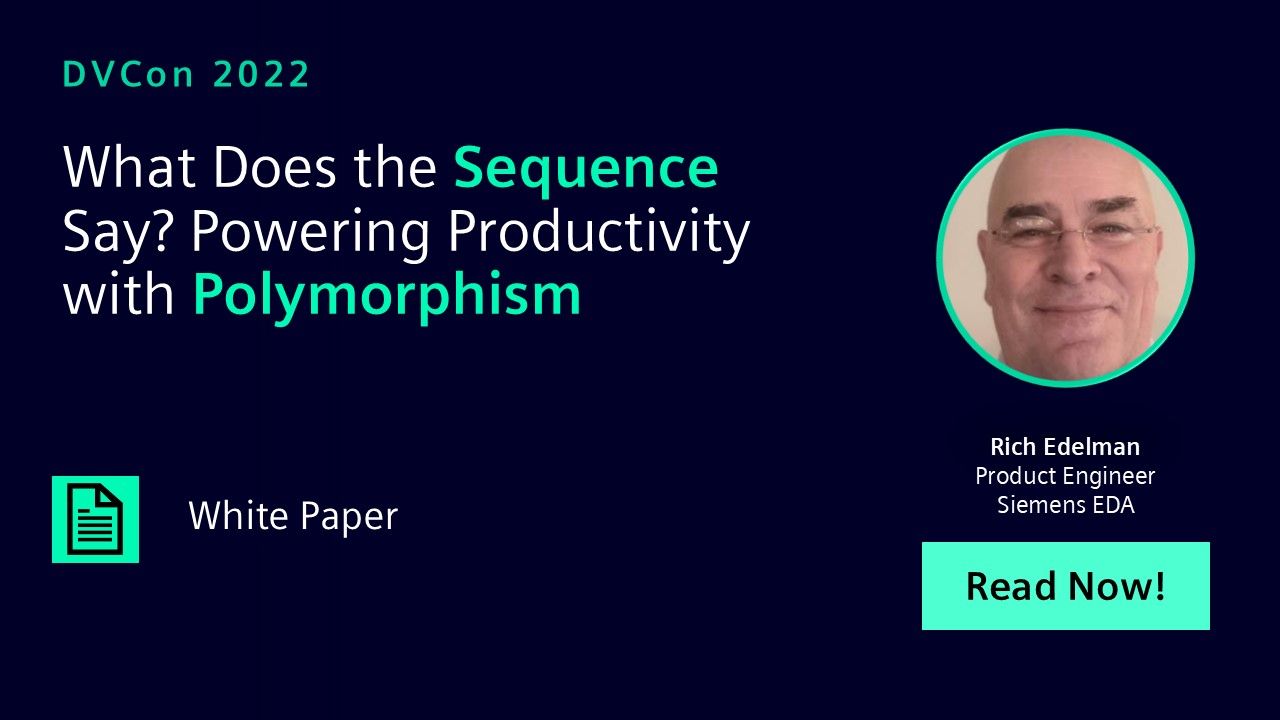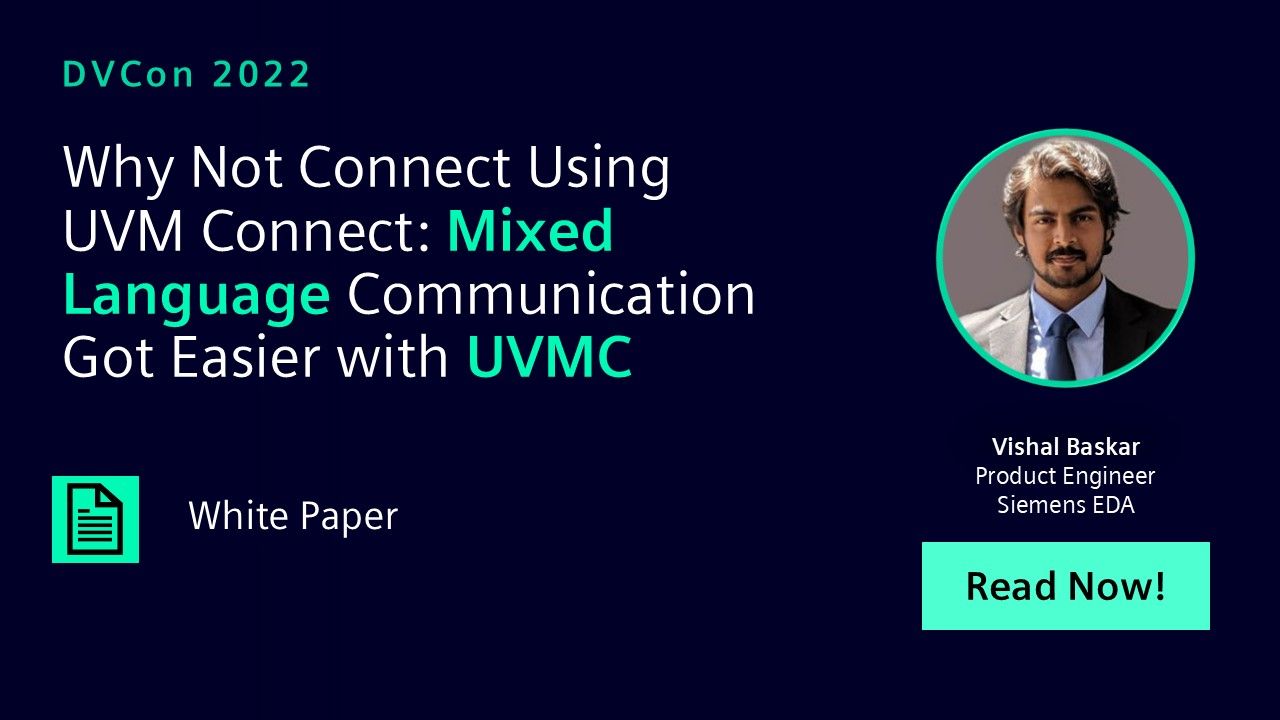Browse all content in Verification Academy: Articles, Cookbooks, Resources, Sessions, and Tracks
Search Results - 124 results
Filters
February 2025
-
Siemens at DVCon 2025: Don’t Miss the Luncheon and More!
Planning, Measurement and Analysis Feb 11, 2025 link
January 2025
March 2024
February 2024
-
UVM Objections at DVCON US 2024 – and Grape Jelly
UVM - Universal Verification Methodology Feb 22, 2024 link
March 2022
-
The Best Verification Strategy You’ve Never Heard Of
Planning, Measurement and Analysis Mar 28, 2022 mp4 -
What Does the Sequence Say? Powering Productivity with Polymorphism
UVM - Universal Verification Methodology Mar 23, 2022 pdf -
How to Avoid the Pitfalls of Mixing Formal and Simulation Coverage
Formal Verification Mar 23, 2022 pdf -
How to Avoid the Pitfalls of Mixing Formal and Simulation Coverage
Formal Verification Mar 23, 2022 pdf -
How to Avoid the Pitfalls of Mixing Formal and Simulation Coverage
Formal Verification Mar 23, 2022 mp4 -

What Does the Sequence Say? Powering Productivity with Polymorphism
UVM - Universal Verification Methodology Mar 23, 2022 Paper -
Why Not Connect Using UVM Connect: Mixed Language Communication Got Easier with UVMC
UVMC Mar 23, 2022 mp4 -

Why Not Connect Using UVM Connect: Mixed Language Communication Got Easier with UVMC
UVMC Mar 23, 2022 Paper -
Why Not Connect Using UVM Connect: Mixed Language Communication Got Easier with UVMC
UVMC Mar 23, 2022 pdf